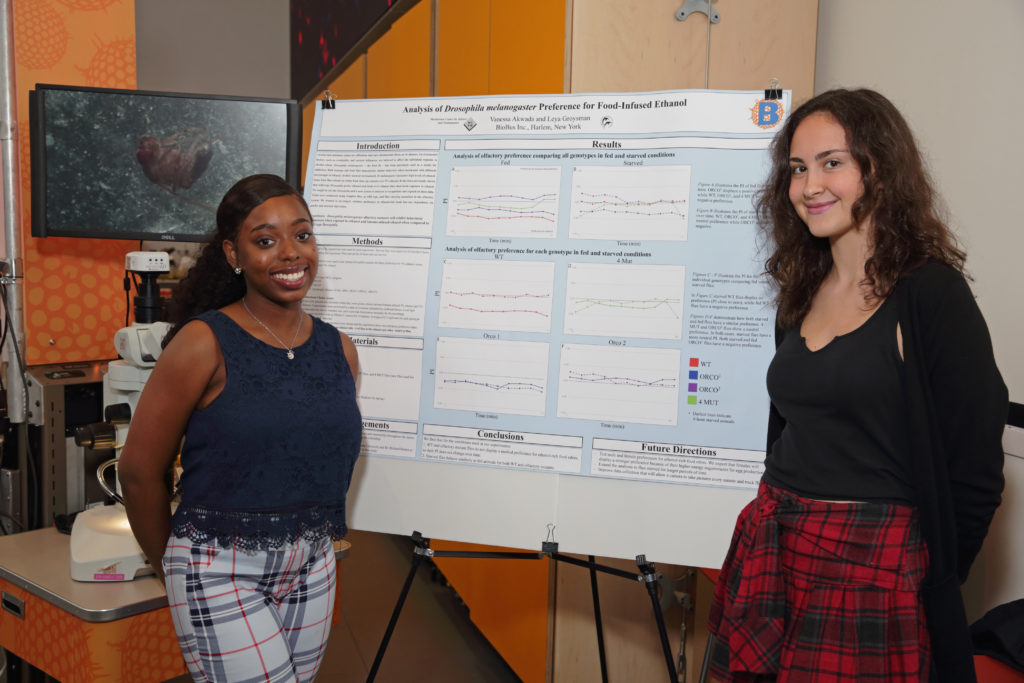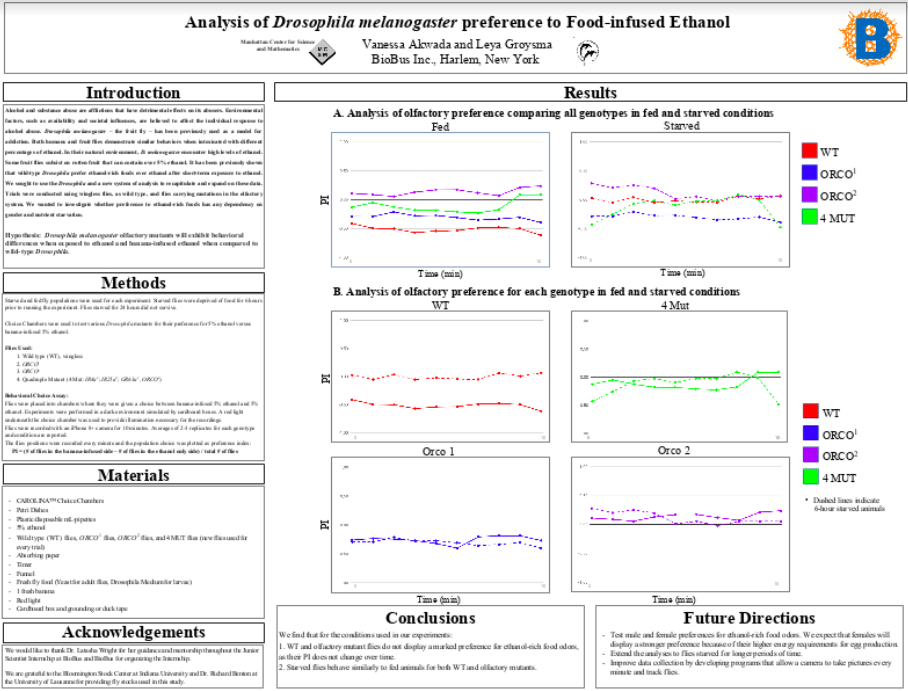
Students: Vanessa Akwada, Leya Groysman
Mentor: Latasha Wright
All 2018-2019 Projects
Brief Description: Interns analyzed wild-type and mutant Drosophila’s behavior when exposed to different types and level of alcohol using choice chambers.

Abstract:
Alcohol and substance abuse are afflictions that have detrimental effects on its abusers. Environmental factors, such as availability and societal influences, are believed to affect the individual response to alcohol abuse. Drosophila melanogaster – the fruit fly – has been previously used as a model for addiction. Both humans and fruit flies demonstrate similar behaviors when intoxicated with different percentages of ethanol. In their natural environment, D. melanogaster encounter high levels of ethanol. Some fruit flies subsist on rotten fruit that can contain over 5% ethanol. It has been previously shown that wild-type Drosophila prefer ethanol-rich foods over ethanol after short-term exposure to ethanol. We sought to use the Drosophila and a new system of analysis to recapitulate and expand on these data. Trials were conducted using wingless flies, as wild type, and flies carrying mutations in the olfactory system. We wanted to investigate whether preference to ethanol-rich foods has any dependency on gender and nutrient starvation.
Hypothesis: Drosophila melanogaster olfactory mutants will exhibit behavioral differences when exposed to ethanol and banana-infused ethanol when compared to wild-type Drosophila.